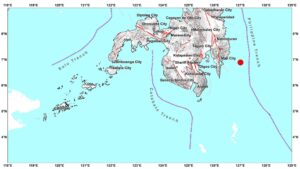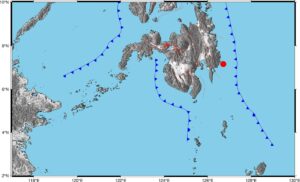By Ashley Erika O. Jose, Reporter
INCUMBENT telecommunications companies are expected to ramp up their investments in digital infrastructure as competition is likely to heat up with the implementation of the Konektadong Pinoy law.
“Konektadong Pinoy Act will lower barriers for new entrants and encourage more players in the market. Incumbent telcos need to invest aggressively in infrastructure like 5G, fiber, and satellite. They need to focus on customers and improve services to be at par with Association of Southeast Asian Nations countries,” Samuel V. Jacoba, founding president of the National Association of Data Protection Officers of the Philippines (NADPOP), said in an interview on Wednesday.
The Konektadong Pinoy Act, or the Open Access in Data Transmission Act, lapsed into law last month. It streamlines the licensing process for new entrants, boosting competition in data transmission.
Ronald B. Gustilo, a national campaigner for the Digital Pinoys organization, said telcos must embrace consumer-centric innovation while also improving their network reach, particularly in underserved or geographically isolated and disadvantaged areas.
“Competition will no longer be won only on price but on quality of service. They must also prepare for stronger regulatory oversight on affordability and accessibility,” Mr. Gustilo said.
PLDT Inc. Chairman and Chief Executive Officer Manuel V. Pangilinan said the company is preparing for the entry of new players.
“It is a complicated subject. We have to be ready, I suppose,” Mr. Pangilinan said on the sidelines of an event last week.
Information and Communications Technology Secretary Henry Rhoel R. Aguda said the implementing rules and regulations (IRR) of the Konektadong Pinoy Act will be released by the first week of October.
“We are still doing the IRR consultation meetings. We are working to complete it before the end of the month,” Mr. Aguda said in a Viber message to BusinessWorld on Wednesday.
The Department of Information and Communications Technology has invited the country’s major telecommunications and internet providers for their inputs in the IRR, Mr. Aguda said previously. He has said that some foreign players like Elon Musk’s Starlink have also signified their interest in helping craft the IRR.
PLDT and Converge ICT Solutions, Inc. have previously indicated their readiness to take part in drafting the IRR of the Konektadong Pinoy Act, with Converge saying the company wants stronger regulatory authority in the IRR.
For its part, Globe Telecom, Inc. is preparing for new market players by ramping up its technology solutions and fiber offerings to stay competitive amid the growing demand for data and reliable internet connections.
For NADPOP’s Mr. Jacoba, incumbent players still have the leverage as they know how to navigate the market more than the new players.
“Incumbent telcos can introduce more customer-centric services and launch affordable plans to capture budget-conscious consumers. Over time, competition will likely push prices downward, but not drastically, unless new players bring disruptive business models or global economies of scale,” he said.
The threat to incumbent telcos will not be immediately felt despite the law explicitly opening the door for new internet service providers, Mr. Jacoba said.
“As new entrants challenge incumbents, telcos will likely introduce more diverse packages — from affordable data bundles to more flexible postpaid and prepaid options. While price reductions are possible, we think consumers should watch for value-added services,” Mr. Gustilo said.
Adel A. Tamano, chief revenue officer of DITO Telecommunity Corp., said security and data privacy should be the focus of the Konektadong Pinoy Act’s IRR.
The company said that the law should be lenient or open towards new entrants as the main goal of the Konektadong Pinoy law is to attract more players into the industry.
Earlier, the Philippine Chamber of Telecommunications Operators said some provisions of the law undermines regulatory oversight and threatens fair competition, as the law only requires entrants to secure cybersecurity certification after two years of operations.
For Digital Pinoys’ Mr. Gustilo, the lowering of barriers for players will reshape the market away from “near-duopoly” towards a multi-player competition.
“Incumbents should differentiate on quality by delivering faster, more reliable internet where it matters most such as urban centers and key growth corridors. In parallel, they should expand to underserved markets ahead of new players, leveraging their existing scale,” Mr. Jacoba added.
Hastings Holdings, Inc., a unit of the PLDT Beneficial Trust Fund subsidiary MediaQuest Holdings, Inc., holds a majority stake in BusinessWorld through the Philippine Star Group.


















